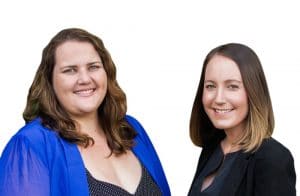
Here are our favourite tips and tricks to help your business out this tax season:
- Immediate Asset Write Off – if cash flow allows and it is in-line with your business goals then take advantage of the one-time increase to $150,000 (excl-GST) of the instant asset write-off. This applies on a per asset basis, so eligible businesses can immediately write off multiple assets. Remember this may cause a tax bill in future years when you sell the asset as you will have claimed the full deduction this financial year. You also need to make sure you take into account your cashflow not just the tax deduction in your decision making.
- Tax Consequence of Cash Flow Boost – for all entities the cash flow boost payment received as part of the COVID-19 relief package should be recorded in a new income account. Here is a link to our blog with further explanation https://www.mjjaccountants.com.au/items-of-interest/cashflow-boost-have-you-received-a-refund-with-the-lodgement-of-your-bas/. It will be ‘non-assessable non-exempt’ income for tax purposes and not reportable on the BAS. If the recipient was a company, and there were no changes to the 2019 income tax return, such amounts will be required to be disclosed at item “7Q Other income not included in assessable income”. However, the 2020 company income tax return has not yet been released and it may have a separate item where Coronavirus stimulus payments are required to be disclosed. Companies should also note that the cash flow boost will create retained earnings that may need to be declared as an unfranked dividend at some time in the future (as no franking credits will arise in relation to the receipt of the cash flow boost).
- JobKeeper Payments – remember these payments are assessable income of the business that receives them. If your business receives say $3,000 x 13 JobKeeper fortnight payments you will have additional taxable income of $39,000. If your effective tax rate is 30%, your business will pay tax of $11,700 on the JobKeeper payments. The normal rules for deductibility apply in respect of the amounts the business pays to its employees where those amounts are subsidised by the JobKeeper payment. The JobKeeper payment is not subject to GST. We would suggest JobKeeper receipts be recorded in a new income account in your accounting software.
- Trust Minutes– as always, trustees of discretionary (or family) trusts are required to make and document resolutions on how trust income should be distributed to beneficiaries for the financial year by 30 June. Failure to do so will result in the trustee being taxed at the highest marginal tax rate (48%).
- Timing of superannuation payments – this year it is key to consider if your business should pay the June quarter superannuation before 30 June or after (but by the due date of 28 July to ensure it remains tax deductible). Which year does your business need the tax deduction? If you want a tax deduction in the 2019/20 financial year, the superannuation fund must receive the funds by 30 June 2020. The tax office doesn’t consider a contribution to be made until the amount is actually credited to a super fund’s bank account so an electronic transfer to another bank account on 30 June is not necessarily considered paid. We strongly recommend you make the payment a week or so before 30 June.
- Perform a stocktake – review your stock valuation and write off any stock that is damaged or obsolete. Complete a stocktake on or before 30 June, and remember that stock can be valued at the lower of cost or net realisable value.
- Write off bad debts– businesses can only obtain income tax deductions for bad debts when various conditions are met. Review your debtors and write off any unrecoverable debts. These debts will come off your income in the year in which you write them off, regardless of the year you invoiced them.
- Logbooks for motor vehicle – updating your logbooks ensure you’re claiming the most accurate amounts for your motor vehicle expenses. If your log book is more than 5 years old (or you can’t put your hands on it) we suggest you start a new log book for a 12-week continuous period. For more information on keeping a log book refer to the ATO website https://www.ato.gov.au/uploadedFiles/Content/MEI/Downloads/TaxTimeToolkit_SB_motor-vehicle.pdf
- Timing of expenses – expenses are only deductible when incurred, i.e. there must be a presently existing liability to pay the expense. Many accruals and provisions are not deductible as they represent an estimate of expenses and do not relate to a presently existing liability. We suggest following up contractors and suppliers for all invoices to ensure they are recorded in your accounting software and you obtain the tax deduction in the correct tax year.
- Entertainment expenses – the provision of entertainment by way of food and drink is generally not tax deductible, except in limited circumstances (for example, where you pay fringe benefits tax on the entertainment). Call it marketing, call it a business meeting (or whatever), but really if it smells and feels like entertainment of a client then it is unlikely to be a business deduction. However, if you have a cup of coffee or a light refreshment with a client, then it is likely to be ok and tax deductible, especially if you have a home-based business or don’t have an office to have client meetings. So how do we determine whether it is entertainment or a meeting expense? There are 4 simple questions to answer: (i) Why – what is the reason for the meeting? Is it for refreshment or social? (ii) What was included? A simple light refreshment or a big meal with alcohol (the later less likely to be deductible)? (iii) Where did you go? (iv) When did you hold the meeting, was it during business hours or in the evening after hours? This is certainly a tricky area and we suggest you chat with your Accountant to obtain further guidance on your situation. We have some more information on our website https://www.mjjaccountants.com.au/tax/tax-deduction-taking-staff-or-clients-out-to-lunch/
ACT NOW! To achieve tax savings and minimise the tax you will pay is to implement relevant tax strategies as soon as possible before 30 June 2020. Please contact us to organise a Tax Planning Appointment on 07 5451 1118.

 07 5451 1118
07 5451 1118 







Comments are closed.